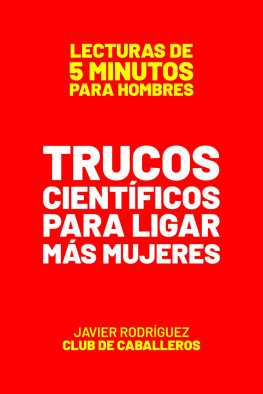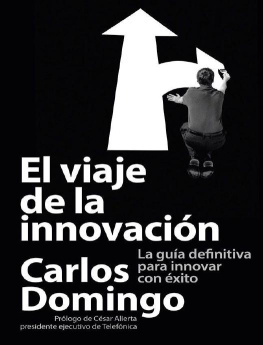Ofrezco mi sincero agradecimiento a Gideon Weil, mi editor, por su orientación y apoyo y a Sandy Choron, mi agente, por su entusiasmo y dedicación sin límites. Gracias también al equipo de HarperSanFrancisco por su ayuda experta en este trabajo.
Alderman, M. K. 1999. Motivation for Achievement: Possibilities for Teaching and Learning. Mahwah, NJ: Lawrence Erlbaum Associates.
Arnett, J. 2000. “High Hopes in a Grim World”. Youth and Society 31: 267-86.
Arnold, K. 1995. Lives of Promise: A Fourteen-Year Study of Achievement and Life Choices. San Francisco: Jossey-Bass.
Arrison, E. 1998. “Academic Self-Confidence as a Predictor of First-Year College Student Quality of Effort and Achievement”. Disertación de Ph. D., Temple University.
Atkinson, S. 1999. “Reflections: Personal Development for Managers”. Journal of Managerial Psychology 14: 502-11.
Austin, L. 2000. What’s Holding You Back? Nueva York: Basic Books.
Baker, B. 2000. “Responses to Dependence: A Social Exchange Model of Employment Practices in Entrepreneurial Firms.” Disertación de Ph. D., University of North Carolina.
Barto, V. 1998. “The Relationship Between Personality Traits of Selected New Jersey Public High School Educators and Successful Academic Achievement of At-Risk Students”. Disertación de Ph. D., Seton Hall University.
Bashaw, R. E., y E. S. Grant. 1994. “Exploring the Distinctive Nature of Work Commitments”. Journal of Personal Selling and Sales Management 14: 41-56.
Beadles, N. A., C. Lowery, M. M. Petty, y H. Ezell. 2000. “An Examination of the Relationships Between Turnover Functionality, Turnover Frequency, and Organizational Performance”. Journal of Business and Psychology 15: 331-37.
Black, H. 1999. “A Sense of the Sacred: Altering or Enhancing the Self-Portrait in Older Age?” Narrative Inquiry 9: 327-45.
Boehne, D., y P. Pease. 2000. “Deciding Whether to Complete or Terminate an Unfinishe Project”. Organizational Behavior and Human Decision Processes 81: 178-94.
Boyer, G. 1999. “Turning Points in the Development of Male Servant Leaders”. Disertación de Ph. D., Fielding Institute.
Bryes, P. 1998. “Organizational Cynicism: Its Nature, Antecedents, and Consequences”. Disertación de Ph. D., University of Cincinnati.
Bridges, C., y V. Perotti. 1993. “Characteristics of Career Achievement: Perceptions of African-American Corporate Executives”. Mid-American Journal of Business 8: 61-64.
Brown, S. 1999. “Holding Up a Mirror: Identity Revision and Its Relationship to Women’s Voluntary Career Change”. Disertación de Ph. D., Fielding Institute.
Burke, R. 1999. “Manager’s Perceptions of Work-Personal Life Balance”. Perceptual and Motor Skills 89: 393-94.
Butler, R. 1999. “Information Seeking and Achievement Motivation in Middle Childhood and Adolescence: The Role of Conceptions of Ability”. Developmental Psychology 35: 146-63.
Bybee, J., S. Luthar, y E. Zigler. 1997. “The Fantasy, Ideal, and Ought Selves”. Social Cognition 15: 37-53.
Byrd, L. 1999. “An Examination of the Relationship Between Personality Types and Career Anchors”. Disertación de Ph. D., Walden University.
Carlin, L. 1998. “Becoming Average”. Disertación de Ph. D., University of Washington.
Carpenter, S. 2000. “Effects of Cultural Tightness and Collectivism on Self-Concept and Causal Attributions”. Social Science 34: 38-56.
Cassirer, N., y B. Reskin. 2000. “High Hopes: Organizational Position, Employment Experiences, and Women’s and Men’s Promotion Aspirations”. Work & Occupations 27: 438-63.
Charlton, K. 1999. “Attempting to Gain Access to a High Power Group: The Effects of Boundary Permeability and Outcome”. Disertación de Ph. D., University of Missouri.
Chartier, C. T. 1998. “Strategic Leadership: Product and Technology Innovation in High-Technology Companies”. Disertación de Ph. D., United States International University.
Childs, B. G. 1998. “Academically Gifted Girls”. Disertación de Ph. D., Case Western Reserve University.
Cialdini, R., R. Borden, A. Thorne, M. R. Walker, S. Freeman, y L. R. Sloan. 1999. “Basking in Reflected Glory: Three Field Studies”. En The Self in Social Psychology , ed. R. Baumeister. Filadelfia: Taylor and Francis.
Comer, L., y T. Drollinger. 1999. “Active Empathetic Listening and Selling Success: A Conceptual Framework”. Journal of Personal Selling and Sales Management 19: 15-29.
Cooper, B., P. Clasen, D. Silva-Jalonen, y M. Butler. 1999. “Creative Performance on an In-Basket Exercise”. Journal of Managerial Psychology 14: 39-56.
Coover, G., y S. Murphy. 2000. “The Communicated Self: Exploring the Interaction Between Self and Social Context”. Human Communication Research 26: 125-47.
Coulthard, P. 1998. “The Quality-Achieving Behavior of Work Group Managers”. Disertación de Ph. D., Portly State University.
Craigie, F. 1999. “The Spirit and Work: Observations About Spirituality and Organizational Life”. Journal of Psychology and Christianity 18: 43-53.
Cron, W., E. Jackofsky, y J. Slocum. 1993. “Job Performance and Attitudes of Disengagement Stage Salespeople Who Are About to Retire”. Journal of Personal Selling and Sales Management 13: 1-13.
Dann, A. 1999. “Job Satisfaction and Work Motivation of Connecticut School Superintendents”. Disertación de Ph. D., University of Connecticut.
Decker, W., y D. Rotondo. 1999. “Use of Humor at Work: Predictors and Implications”. Psychological Reports 84: 961-68.
Devine, D., L. Clayton, J. Philips, B. Dunford, y S. Melner. 1999. “Teams in Organizations: Prevalence, Characteristics, and Effectiveness”. Small Group Research 30: 678-711.
Dickinson, M. J. 1999. “Do Gooders or Do Betters? Educational Research 41: 221-27.
Edley, P. 1998. “Designing Culture: A Feminist Study of Power and Gender in a Woman-Owned-and-Operated Interior Design Firm”. Disertación de Ph. D., Rutgers University.
Eisenberger, R., L. Rhoades, y J. Cameron. 1999. “Does Pay for Performance Increase or Decrease Perceived Self-Determination and Intrinsic Motivation?” Journal of Personality and Social Psychology 77: 1026-40.
Elliott, M. 1999. “Time, Work, and Meaning”. Disertación de Ph. D., Pacifica Graduate Institute.
Ellis-Payne, R. 1999. “Job Satisfaction and Motivation in the Service Sector”. Disertación de Ph. D., Nova Southeastern University.
Elovainio, M., y M. Mivimaeki. 2001. “The Effects of Personal Need for Structure and Occupational Identity in the Role Stress Process”. Journal of Psychology 141: 365-78.
Essic, E. 1999. “The Mutiple Mentor Model”. Disertación de Ph. D., University of North Carolina en Greensboro.
Evans, K., R. Kleine, T. Lyry, y L. Crosby. 2000. “How First Impressions of a Customer Impact Effectiveness in an Initial Sales Encounter”. Journal of the Academy of Marketing Science 28: 512-26.
Fallon, J., J. Avis, J. Kudisch, T. Gornet, y A. Frost. 2000. “Conscientiousness as a Predictor of Productive and Counterproductive Behaviors”. Journal of Business and Psychology 15: 339-49.
Feather, N. T. 1999. “Judgments of Deservingness: Studies in the Psychology of Justice and Achievement”. Personality and Social Psychology Review 3: 86-107.
Fisher, S., W. D. K. Macrosson, y J. Wong. 1998. “Cognitive Style and Team Role Preference”. Journal of Managerial Psychology 13: 544-57.
Flaherty, T., R. Dahlstrom, y S. Skinner. 1999. “Organizational Values and Role Stress as Determinants of Customer-Oriented Selling Performance”. Journal of Personal Selling and Sales Management 19: 1-18.
Franklin, C. W., y C. A. Mizell. 1995. “Some Factors Influencing Success Among African American Men”. Journal of Men’s Studies 3: 191-204.













